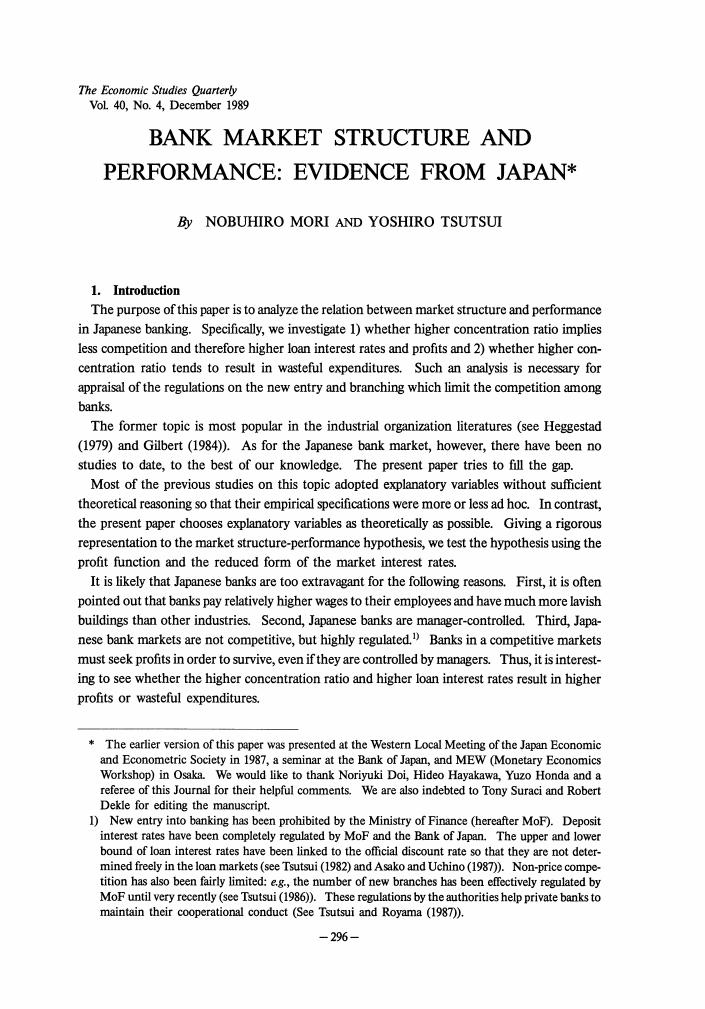5 0 0 0 OA Why Are Cabinet Supporters Happy?
- 著者
- Yoshiro Tsutsui Shoko Yamane Fumio Ohtake
- 出版者
- Association of Behavioral Economics and Finance
- 雑誌
- 行動経済学 (ISSN:21853568)
- 巻号頁・発行日
- vol.10, pp.1-6, 2017 (Released:2017-04-21)
- 参考文献数
- 20
Using a monthly survey, this paper finds that supporters of the governing cabinet are significantly happier than non-supporters throughout our sample period. We investigate the reason and examine two hypotheses: 1) happy persons support the ruling Liberal Democratic Party, and 2) supporters of any governing party tend to be happy. Oaxaca decomposition analysis reveals that the difference in happiness is not attributable to the difference of attributes and personalities, rejecting hypothesis 1). On the other hand, the happiness of cabinet and anti-cabinet supporters was not significantly different after an election in which the governing party was replaced, supporting hypothesis 2).
- 著者
- Shoko Yamane Hiroyasu Yoneda Yoshiro Tsutsui
- 出版者
- 行動経済学会
- 雑誌
- 行動経済学 (ISSN:21853568)
- 巻号頁・発行日
- vol.5, pp.273-276, 2012 (Released:2013-06-12)
- 参考文献数
- 7
This paper investigates the individual outcomes of irrational thinking, including paranormality and non-scientific thinking. These modes of thinking were identified by factor analysis from a 2008 survey. Income and happiness are used as measures of performance. Empirical results reveal that non-scientific thinking lowers income, whereas paranormality does not affect it. While non-scientific thinking lowers happiness, paranormality raises it. Extending the model, we find that higher ability and self-control result in higher income and happiness. Selfishness raises income, but diminishes happiness. These results suggest that generally achieves higher individual performance except that belief in paranormality raises happiness.
- 著者
- NOBUHIRO MORI YOSHIRO TSUTSUI
- 出版者
- JAPANESE ECONOMIC ASSOCIATION
- 雑誌
- The Economic Studies Quarterly (ISSN:0557109X)
- 巻号頁・発行日
- vol.40, no.4, pp.296-316, 1989-12-20 (Released:2007-10-19)
- 参考文献数
- 24
1 0 0 0 IR [エッセイ] 私の修業時代
- 著者
- 筒井 義郎 Yoshiro Tsutsui
- 出版者
- 甲南大学経済学会
- 雑誌
- 甲南経済学論集 = Konan economic papers (ISSN:04524187)
- 巻号頁・発行日
- vol.60, no.3, pp.123-185, 2020-03-20
- 著者
- Shunichiro Sasaki Shiyu Xie Shinsuke Ikeda Jie Qin Yoshiro Tsutsui
- 出版者
- 行動経済学会
- 雑誌
- 行動経済学 (ISSN:21853568)
- 巻号頁・発行日
- vol.5, pp.15-25, 2012 (Released:2012-06-01)
- 参考文献数
- 16
- 被引用文献数
- 2
This paper pursues two aims by conducting economic experiments in Shanghai. One aim of this paper is to investigate the following three anomalies on time discounting: the delay, interval, and magnitude effects. We confirmed all the three anomalies. Particularly, by separating the delay effect from the interval effect, the delay effect is found when the delay is relatively short, which has seldom been reported in former studies. Another feature of our experiment is that it is immune to the criticism that the subjects recruited for the experiment did not have sufficient incentives to report their true preferences because the highest reward that was offered to the subjects was approximately equivalent to their monthly household incomes. The second aim of this paper is its explanation of the subjects’ procrastinating behaviors by their time discount rates and the degrees of the delay effect. Our analysis suggested that higher time discounting always promotes procrastination; however, the delay effect is negatively associated with procrastination. An interpretation of the latter result can be that our subjects, i.e., the students of Fudan University, are sophisticates rather than naïfs.
